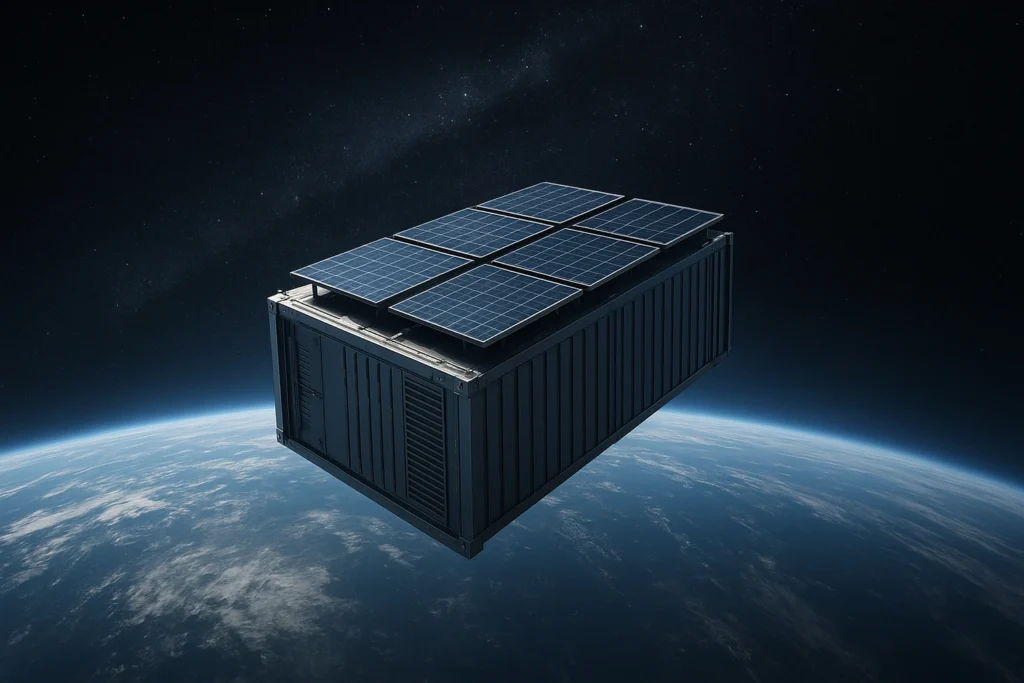Turin, Italy – Amazon founder Jeff Bezos on Friday predicted that within the next 10 to 20 years, data centres of gigawatt scale could be built in space, harnessing uninterrupted solar energy to outperform those on Earth.
Speaking at Italian Tech Week in Turin, Bezos said that the environmental and operational advantages of orbital data centres make them an appealing next step in computing infrastructure.
These giant training clusters will be better built in space because we have solar power there, 24/7. There are no clouds and no rain, no weather, Bezos said in conversation with Ferrari and Stellantis Chairman John Elkann.
We will be able to beat the cost of terrestrial data centres in space in the next couple of decades. Bezos also drew parallels between the rise of artificial intelligence and the early 2000s internet boom, encouraging measured optimism amid potential speculative bubbles.
Demand for computational power has surged in recent years, particularly with the expansion of artificial intelligence and machine learning technologies.
Traditional data centres require significant amounts of electricity and water for cooling, a challenge that has only intensified with larger server farms.
Space offers unique advantages. Orbiting facilities could rely on constant solar energy, while the vacuum of space provides natural cooling for servers. This combination could reduce both operating costs and environmental impact.
“Space has always been used to benefit life on Earth,” Bezos said. “Weather satellites, communication satellites now the next step is data centres, then other kinds of manufacturing.”
Experts say space based data centres could provide a reliable environment for high intensity computing. Dr. Elena Martinez, a space systems engineer at the European Space Agency, explained, “The concept is intriguing.

Constant solar power and natural cooling could make data centres far more efficient. But the challenges launch costs, maintenance, and upgrades are significant.
Dr. Rajiv Kumar, professor of computer science at the Indian Institute of Technology, noted that autonomous systems would be key.
To operate in orbit, data centres must manage themselves with minimal human intervention. AI driven maintenance and modular hardware will be essential for feasibility.
Some analysts argue that the cost of rocket launches and orbital deployment currently outweighs potential gains. Yet Bezos believes that ongoing advances in reusable rockets and satellite technology will eventually make orbital data centres competitive with Earth based facilities.
While Bezos outlined an optimistic vision, experts urge caution. Dr. Sophie Reynolds, a computational infrastructure researcher at MIT, said, “Orbital data centres are promising for sustainable computing.
But we need extensive testing for reliability and cost effectiveness before large scale deployment. Industry insiders also note regulatory challenges.
International agreements on space traffic and debris management will be critical, said Lars Petersen, an aerospace consultant based in Copenhagen. “Without proper coordination, orbital infrastructure could pose risks to existing satellites.”
Analysts predict a phased approach for space-based data centres. Initial pilot projects could focus on small, modular clusters to test energy efficiency and autonomous operation.
Partnerships between private companies and space agencies could accelerate development, leveraging advances in rocket reuse, satellite deployment, and automated maintenance.
Bezos’s vision of orbital data centres aligns with a broader trend of leveraging space for practical Earth based applications. As costs decline and technology matures, large scale space based computing may become a feasible and sustainable alternative to terrestrial infrastructure.
Jeff Bezos’s prediction of gigawatt scale data centres in space highlights the potential for a new era in computing. While significant technical, financial, and regulatory challenges remain, the advantages of uninterrupted solar power, efficient cooling, and reliable infrastructure make orbital data centres an intriguing possibility. As research progresses and technology evolves, space may become the next frontier for digital infrastructure.
